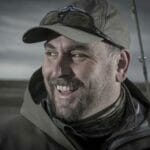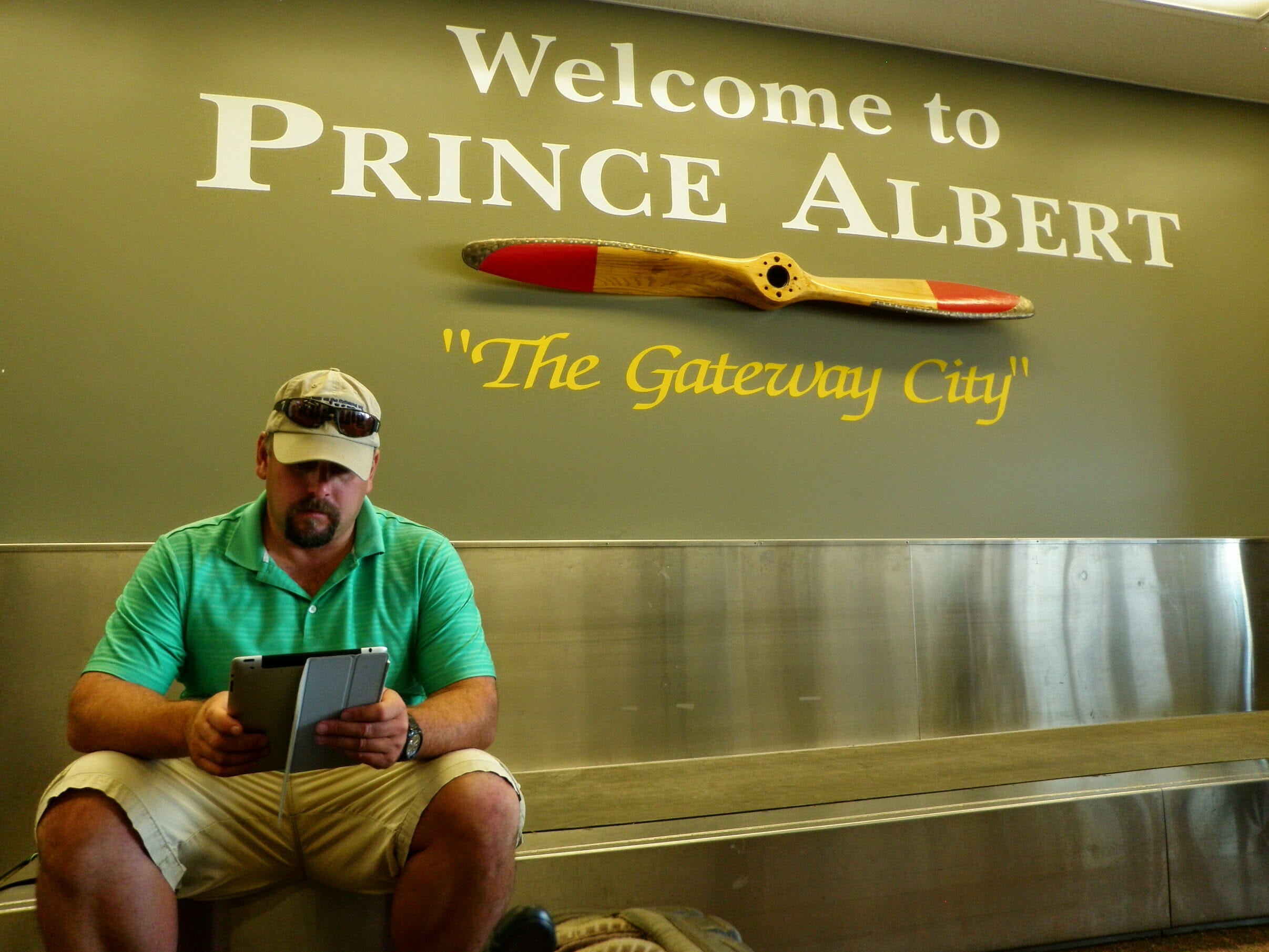Writer Kirk Deeter taking notes on a layover in Prince Albert, Sask., Canada, en route to Lake Athabasca. Chris Hunt photo.
“How in the heck did I ever end up here?”
It’s a question I’ve asked myself many times over.
Sipping icy Coca-Cola at a Bolivian army base with El Comandante, as my four Argentine and one Brazilian travel companions stacked $10,000 in American hundred-dollar bills on a conference table…
Thundering along in a Soviet-era Mi-8 above the Arctic Circle with only my backpack filled with a computer, camera, six-pairs of underwear and a bottle of Scotch I’d bought at Duty-Free in Helsinki, and nothing more (because somewhere between Detroit and Murmansk, all my gear had been lost)…
Grilling fresh-caught cabrilla over an open fire on a beach in Baja with a “retired” member of the “Hollywood-by-the-Sea” gang, who explained his tats and bullet-hole scars as we shared a bottle of Mezcal…
Stare-downs with moose in New Brunswick, bears in Alaska… dancing around tiger snakes in Tasmania… drinking “swifties” of Guinness in Ireland between beat-turns on the River Moy, and pulling on 800-pound mako sharks with a fly rod in the open Pacific with Conway Bowman…
If you had told me during my high school sophomore English class that this is where the road might lead… I’d have told you that you were full of beans. But that’s exactly where it went.
I got lucky. People gave me breaks. It still wasn’t easy.
The world is full of anglers who want to write stories. But there are scant few professional writers who happen to genuinely love and understand fishing. To the person who wants to follow the fishing-writing path, I encourage you to always endeavor to be the latter and stay true to the craft.
And the truth is, once you start literally wading and floating your way through all of it, you realize that fishing has almost nothing to do with pulling finned creatures around by their faces, and everything to do with raw and wild natural places, and the gritty and interesting people whom you meet along the way.



